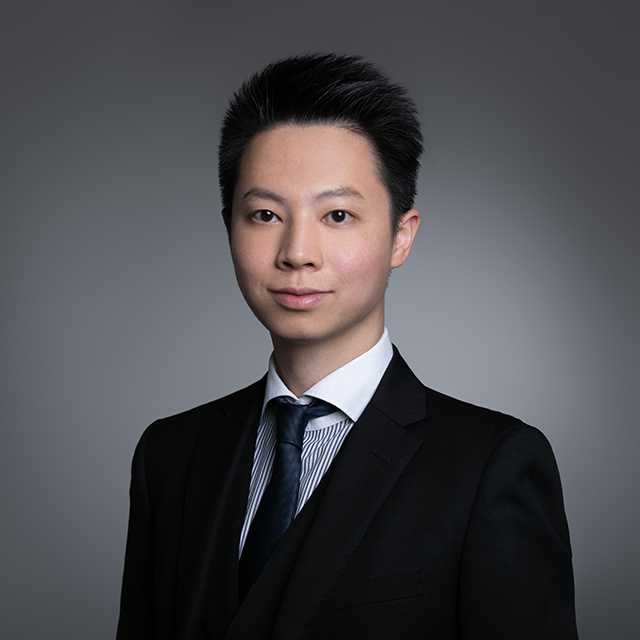Insolvency Law — Hong Kong Winding-up Orders: Back to the Future?
The Court’s ruling in Re Up Energy Development Group Limited [2022] HKCFI 1329 brings Hong Kong restructuring and insolvency law and practice closer to the way it was at the turn of the millennium and in the decade that followed.
Re Up Energy Development Group Limited
| Reference: | [2022] HKCFI 1329 |
| Court: | Court of First Instance |
| Before: | Hon Linda Chan J |
| Appearance: | Anson Wong Yu Yat of Denis Chang’s Chambers, led by Ms Audrey Eu SC and instructed by Fan Wong & Tso, appeared for the opposing creditor, Integrated Capital (Asia) Limited. |
| Date of Decision: | 6 May 2022 |
Overview
If there were still any lingering doubts about whether the Hong Kong Company’s Court would take a different approach under the leadership of the Hon. Linda Chan J to the winding-up of offshore companies, her Ladyship’s judgment in the case of Up Energy Development Group Limited [2022] HKCFI 1329 (the “Judgment”) has put those doubts to rest. James Wood discusses the significance of the ruling.

The case of Up Energy Development Group Limited involved an unpaid creditor who was owed a substantial sum of money and who asked the court to make a winding-up order against a non-Hong Kong incorporated offshore company listed on the HKEx. The provisional liquidators appointed by the court in the place of incorporation – ie Bermuda – opposed the petition on the ground that there was no benefit if the Hong Kong Court made a winding-up order.
As explained by the Hon. Linda Chan J in the Judgment, the proposition of the provisional liquidators and also the opposing creditor would, if accepted, mean that an unpaid creditor which made a loan to an offshore company in Hong Kong and who is otherwise able to satisfy the 3 core requirements or factors set-out in Re Real Estate Development Co [1991] BCLC 210 could not seek a winding-up order under s.327(1) of the Companies (Winding-up and Miscellaneous Provisions) Ordinance (Cap. 32) so as to bring into operation the statutory scheme of winding up in Hong Kong. The position advanced was unusual because it flies against the long line of authorities decided in the context of s.327 (and the equivalent provisions in other jurisdictions) and the fact that the court has “in the past wound up many foreign listed companies”. The case was also unusual because the officeholders had opposed a winding-up order in circumstances where they had not carried out any meaningful investigation into the affairs of the company, despite having been appointed to office for over 5 years.
Immediately prior to the appointment of the Hon. Linda Chan J as Companies Judge, experience demonstrates that the Hong Kong Companies Court has in recent years exercised far greater restraint than in previous times when making winding-up orders or appointing provisional liquidators in respect of offshore companies. In particular, it became customary for an offshore company to be wound-up only in its place of incorporation and for common law assistance instead to be sought in Hong Kong by the offshore liquidators of their powers. However, this practice began to wane with the decision in Li Yiqing v Lamtex Holdings Ltd [2021] HKCFI 622. The Judgment in Up Energy Development Group Limited has consolidated this reasoning and now, seemingly, has reduced the deference to the courts of the place of incorporation of the offshore company when considering whether or not to make a winding-up order in Hong Kong under s.327.
In the Judgment, the learned Judge held that in respect of an offshore incorporated company listed in Hong Kong, it would be “unreal or artificial to suggest that the Hong Kong Companies Court should ignore all the affairs carried out by the company in Hong Kong and the corresponding need to investigate them and leave the control and supervision over the winding up to the court of the place of incorporation. This is particularly so where the company was incorporated in offshore jurisdictions like the BVI, Cayman Island and Bermuda which do not require the company to carry on any business or meaningful activity in the place of incorporation other than appointing agents to deal with the corporate filings and maintaining the registers of members, directors and charges.”
The learned Judge also held that the present case was a paradigm example. Other than maintaining its registers and complying with the statutory requirements of filings, the company had not carried on any business or other activity in Bermuda. Nor did the company have any assets in Bermuda. In the words of the learned Judge, “It is difficult to see why all the affairs arising in the liquidation of such company in Hong Kong should be left to the liquidators appointed in Bermuda.”
Contrary to recent practice, the learned Judge also emphatically held that “the mere fact that a foreign company is wound up by the court of the place of incorporation does not obviate the need for a winding-up order against the company in other jurisdictions. If and to the extent that there are assets within the domestic jurisdiction (which would normally be sufficient to satisfy the second core requirement and possibly, the first core requirement), those assets will be taken and dealt with by the liquidators appointed in that jurisdiction and the liquidation will be carried on as ancillary liquidation.” In terms of satisfying the 3 core factors in exercising statutory jurisdiction as mentioned in Re Real Estate Development Co, the learned Judge took a realistic and flexible approach in the Judgment to the issue and held that “in the case of a non-Hong Kong company whose primary listing has been on HKEx, it would not be difficult for the petitioner to satisfy the 3 core requirements.” (Emphasis added.)
The Judgment in Up Energy Development Group Limited is eminently sensible to the prevailing circumstances in Hong Kong and represents a tangible statement of what could be described as being public policy issues. It is possible that the Judgment may significantly change current practices in Hong Kong by giving equal or even greater weight to the practical reality that notwithstanding incorporation outside of Hong Kong – the business, its financing and administrative functions are in Asia rather than in the Caribbean.
The Judgment is essential reading and brings Hong Kong restructuring and insolvency law and practice closer to the way it was at the turn of the millennium and in the decade that followed. The Judgment will result in a far greater emphasis on Hong Kong insolvency processes in respect of offshore companies.
This legal commentary is solely authored by James Wood.
| James Wood
James is a seasoned litigator with over 25 years experience. He is particularly recognised for his expertise in restructuring and insolvency, commercial fraud and financial disputes, including disputes involving asset tracing and recovery. Before joining the Bar, James was a financial services and disputes lawyer with Freshfields, Goldman Sachs, O’Melveny & Myers, and most recently a Solicitor Advocate and Partner at Lipman Karas. His cases are often substantial and cross-border in nature, involving legal proceedings in forums around the world including in Bermuda, the Caribbean, the Channel Islands, Indonesia, Mauritius, the PRC, and Singapore. He has also been recommended in Chambers & Partners & Legal 500. |
|
Anson Wong Yu Yat
“Anson is very responsive and hard-working. A junior with good judgement.” Anson was called to the Bar in 2015. He has appeared in more than 100 court judgments (including 14 cases in the Court of Final Appeal with 10 substantive appeals) over the mere span of six years of full practice, reflecting the exceptional wealth of experience and exposure in civil litigation for his seniority. He has developed a broad civil practice with particular interest in intellectual property and competition law matters. Anson is experienced in handling both civil and criminal matters involving complex issues of law. Recently, Anson has acted as junior counsel in three civil appeals before the Court of Final Appeal determining important questions of law concerning insolvency matters, land law and equity, and service out of jurisdiction: Re Hsin Chong Construction Co Ltd (2021) 24 HKCFAR 98; Cheung Lai Mui v Cheung Wai Shing (2021) 24 HKCFAR 116; Employees Compensation Assistance Fund Board v Fong Chak Kwan (FACV 5/2022). |
This article was first published on 11 May 2022.
Disclaimer: This article does not constitute legal advice and seeks to set out the general principles of the law. Detailed advice should therefore be sought from a legal professional relating to the individual merits and facts of a particular case. The photograph which appears in this article is included for decorative purposes only and should not be taken as a depiction of any matter to which the case is related.

